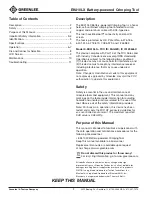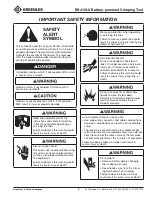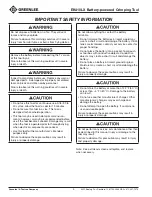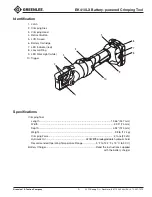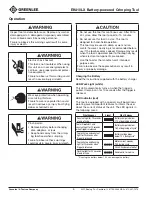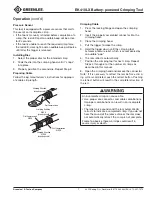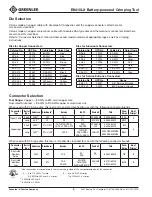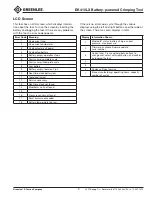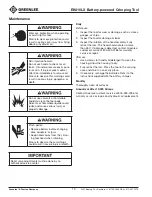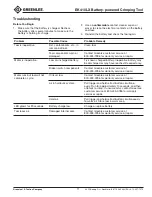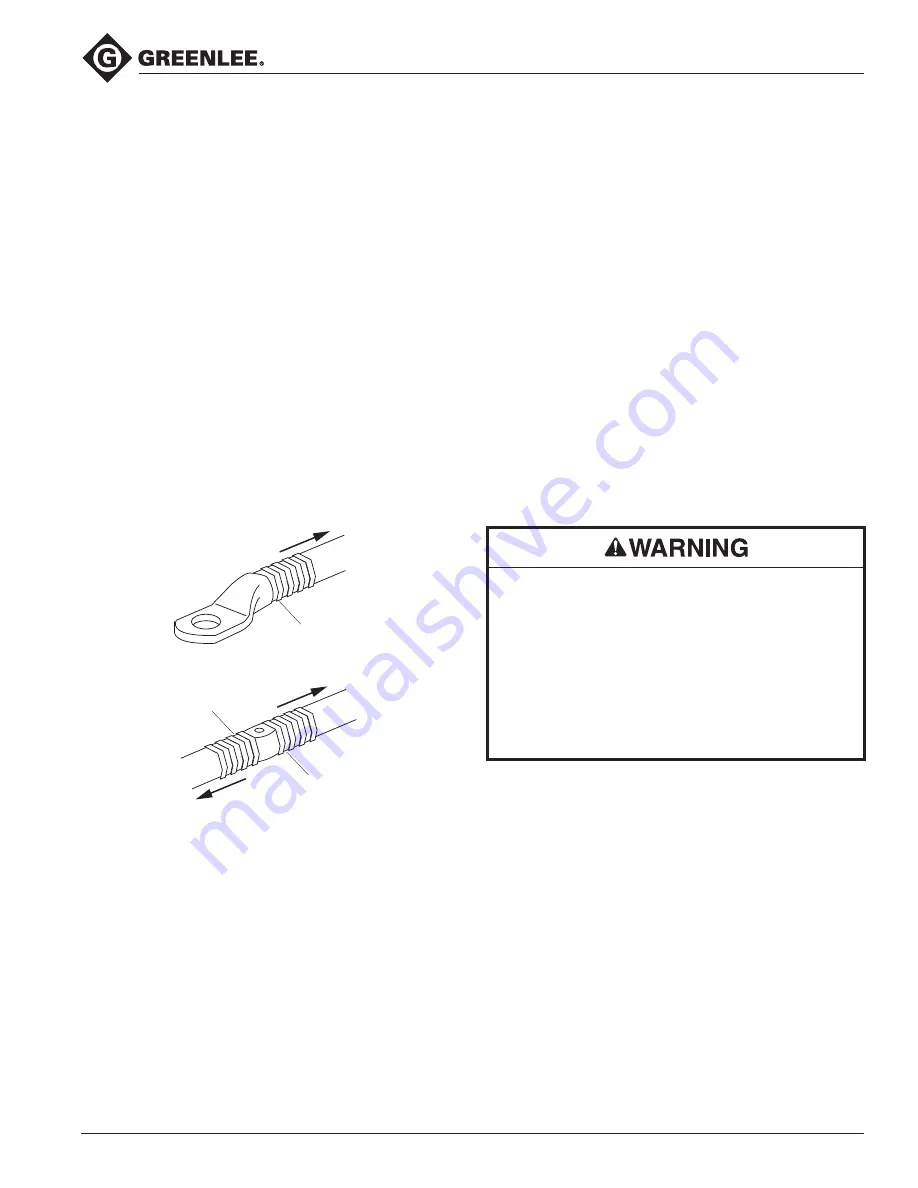
Greenlee / A Textron Company
4455 Boeing Dr. • Rockford, IL 61109-2988 USA • 815-397-7070
7
EK410LX Battery-powered Crimping Tool
Operation
(cont’d)
Pressure Sensor
This tool is equipped with a pressure sensor that alerts
the user of an incomplete crimp.
• If the tool is manually retracted before completion of a
crimp, the red LED and an audible beep will be active
for 2 seconds.
• If the tool is unable to reach the required crimp force,
the red LED, work light, and an audible beep will pulse
until after the trigger is released.
Installing Dies
1. Select the proper dies for the intended crimp.
2. Slide the die into the crimping head until it “snaps”
into place.
3. Properly position the second die. Repeat Step 2.
Preparing Cable
Follow the lug manufacturer’s instructions for appropri-
ate cable strip length.
Crimping Direction
(evenly spaced)
First Compression
Crimping Direction
SIDE A
(evenly spaced)
Crimping Direction
SIDE B
(evenly spaced)
First Compression
SIDE A
First Compression
SIDE B
Crimping Cable
1. Press the locking flange and open the crimping
head.
2. Insert the properly assembled connector into the
crimping head.
3. Close the crimping head.
4. Pull the trigger to make the crimp.
5. Hold the trigger down until the crimping tool
achieves pressure relief, which is accompanied by
an audible “pop”.
6. The ram retracts automatically.
7. Position the crimping tool for next crimp. Repeat
Steps 4 through 6 for the number of crimps as
described in this manual.
8. Open the crimping head and remove the connector.
Note: If it is necessary to retract the ram before a crimp-
ing cycle is completed, push the retract button. Pushing
the retract button will result in the complete retraction of
the ram.
An incomplete crimp can cause a fire.
• Use proper die, connector, and cable combinations.
Improper combinations can result in an incomplete
crimp.
• The relief valve sounds and the ram automatically
retracts to indicate a completed crimp. If you do not
hear the sound of the relieve valve or the ram does
not automatically retract, the crimp is not complete.
Failure to observe these warnings could result in
severe injury or death.


